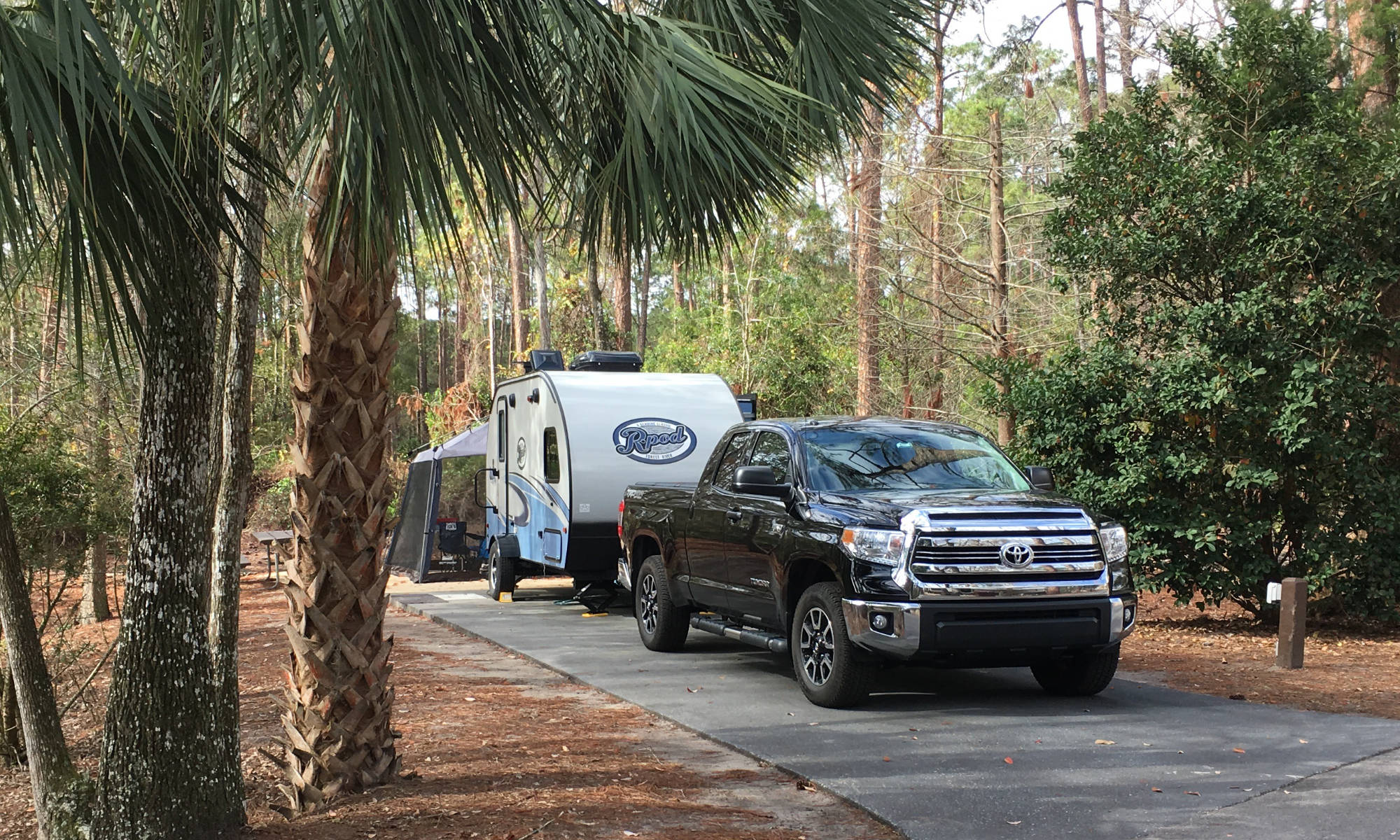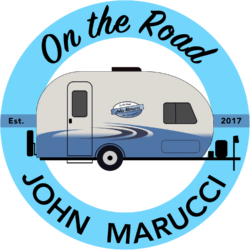In this blog, I’ll countdown my top five avoidable RV newbie mistakes. These mistakes range from major to minor, and we’ll count them down so you can avoid these mistakes before you get started. If you are an experienced RVer, this list is worth a look to see if you also have made any of these mistakes.
We’ll cover these from least to most problematic and add tips along the way to help you avoid these mistakes. Each mistake is one I have made.
Number 5 in our Countdown – Bringing Too Much Stuff
I’ve been traveling by RV for a while now, and one of the things I still deal with is bringing too much stuff on any given trip. To manage risk, I bring a lot of tools. To stay away from laundry, I bring a lot of clothes. Because I don’t want to go to the grocery store too often, I bring a lot of food. Since I produce videos, I bring a lot of tech and equipment.
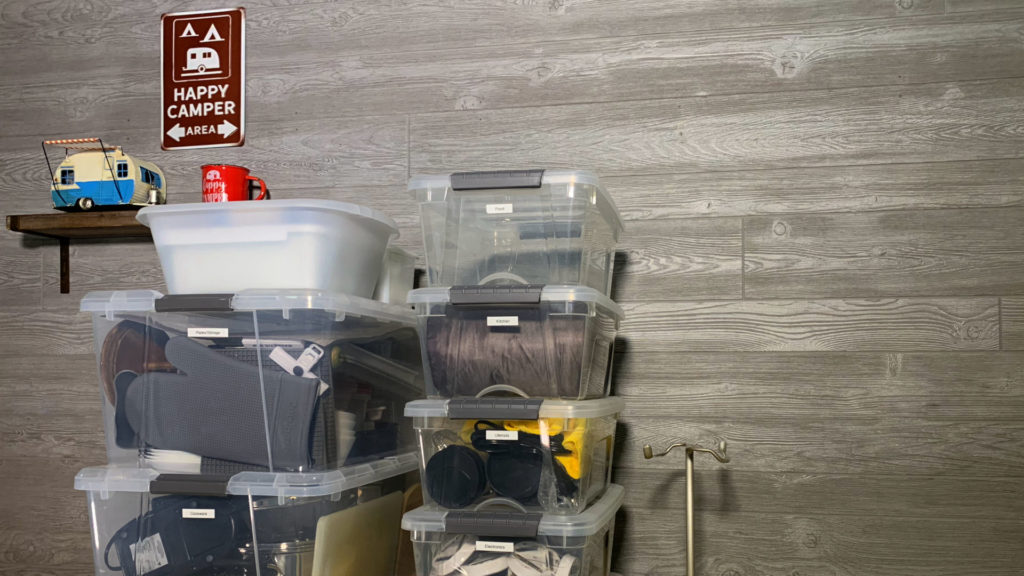
So how do you find the balance between having what you may need and what you really need? This is a tricky question as some people are more risk-averse than others. I tend to plan out my trips and avoid risk, so I probably bring too much stuff on most trips. However, it seems that the one time I pack lite and leave some stuff behind is when I need the thing I purposefully kept from packing.
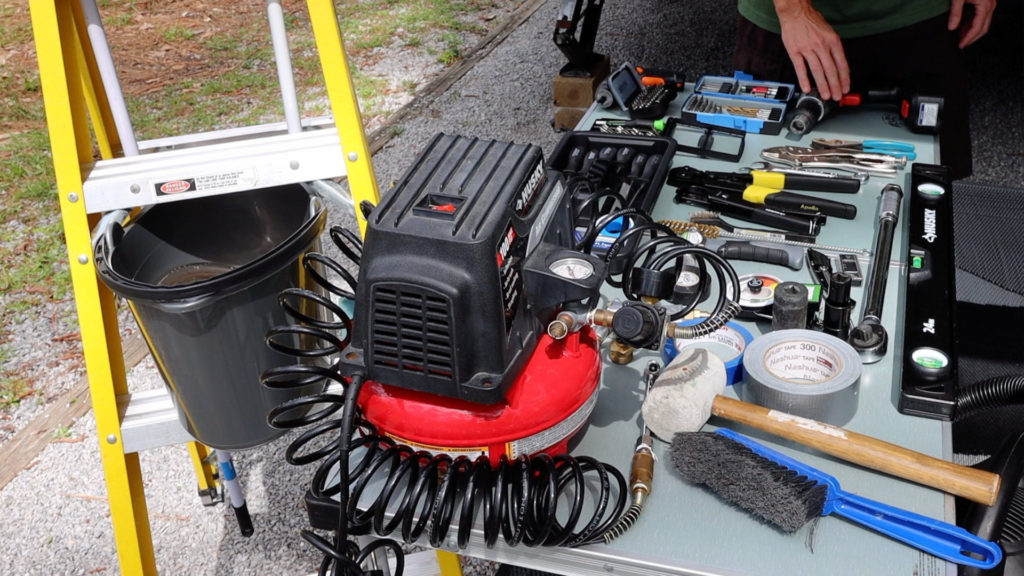
The tip here is to know the length and type of trip you’ll be taking and adjust your packing. If you’re going off-grid, it will mean a different plan than going to an RV resort. There is likely more risk when boondocking off-grid away from a town vs. an RV resort near a town and amenities. If I break a water hose at an RV resort, I can probably hop into town and pick one up with relative ease. If I’m 50 miles away from everything while boondocking, then I likely will need a backup hose or a way to fix the hose.
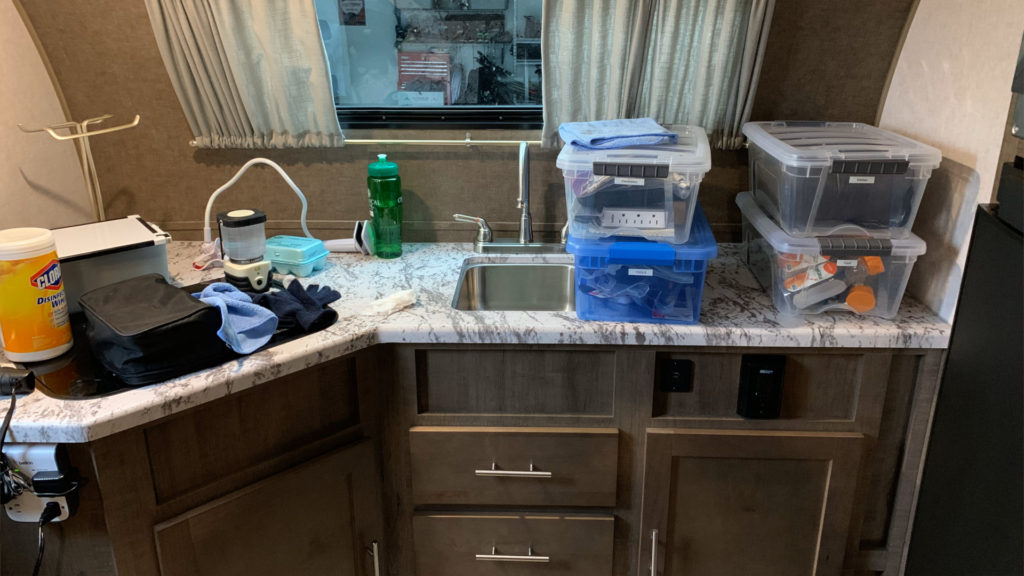
Your temperament, tow vehicle, and type of RV also play into this decision. If you are already tight on payload with your tow vehicle and trailer, you just won’t have the capacity to take a bunch of stuff with you. You may want to counter any possible risk, but if you can’t add extra tools and supplies because your tow vehicle can’t carry it, you’ll need to adjust or get a bigger vehicle.
Number 4 in our Countdown – Camping at the Wrong Time and Wrong Place
This is the classic mistake where new RVers plan a trip on a holiday weekend or during an extremely busy time and place. I am convinced of the contrarian approach to camping unless I can pick a site I already know in advance. So, I pretty much avoid camping during hectic holidays unless I have a site reserved that I know will be good. The first time is always a bit of a risk, but after a few trips and understanding campground maps, you can lower your risk. We have a video called Finding a Good RV Campsite Basics that will help you improve your skills in choosing the best campsite at a given campground.
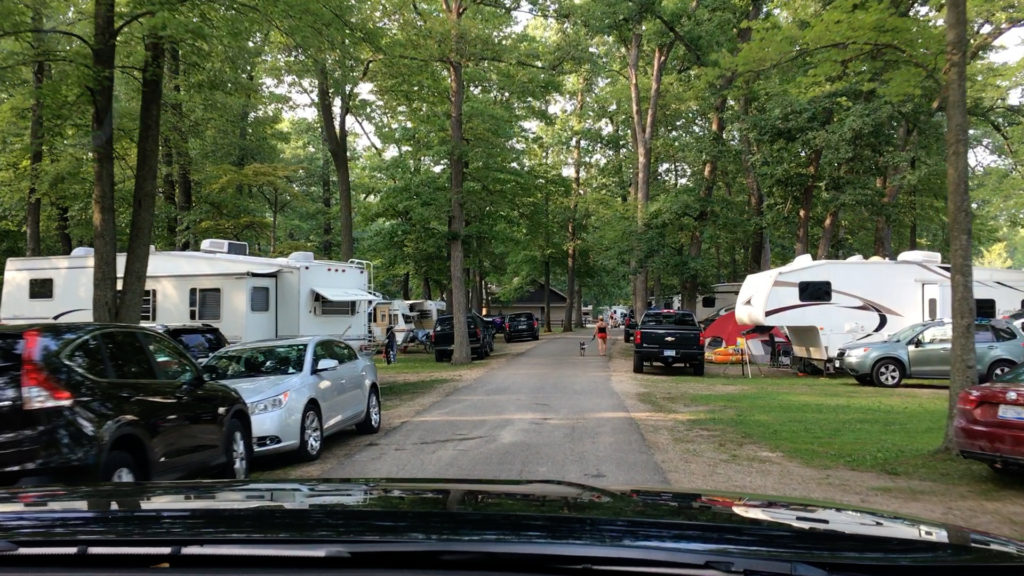
Wrong time and wrong place can mean several different things, and to me, timing is everything. Michigan’s UP is an awesome place to visit, but you may want to consider early fall vs. mid-summer unless you are in love with mosquitoes and black flies. I made this mistake and won’t do it again. There was a lot of prep work and packing only to show up during the height of “let’s attack humans week” and pretty much have the trip negatively impacted. It would have been different and better if I had waited 6-8 weeks.
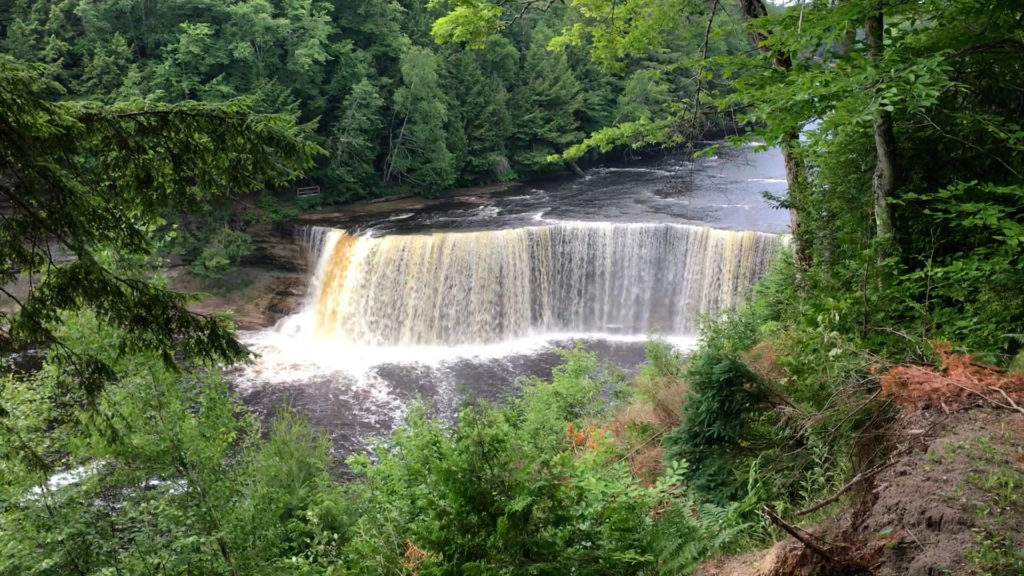
If you check out our National Parks visitor data, you’ll notice that some National Parks aren’t busy at all during the summer. Wow, let’s go there! Not so quick. Maybe there is more to it. Why are they busy in the fall and spring only? Because it is too hot to camp there in summer.
Fall can be tricky at some higher-elevation campgrounds, as snow can quickly become a problem. Some places in the south can be very stormy and even have somewhat frequent tornadoes in the springtime. This is all to say that you need to do some research before you hit the road and understand the place where you are heading.
Number 3 in our Countdown – Going Too Fast
Going too fast can be applied to a few different areas of RVing. Besides towing down the road too fast, which will significantly affect gas mileage and may be more than your trailer tires can handle, you can go too fast backing up your trailer, which can be catastrophic. I’ve seen people damage their new RVs when backing in simply because they went too fast. I can’t tell you how many times I’ve heard someone spotting the person backing in yelling at the driver with the driver not hearing it.
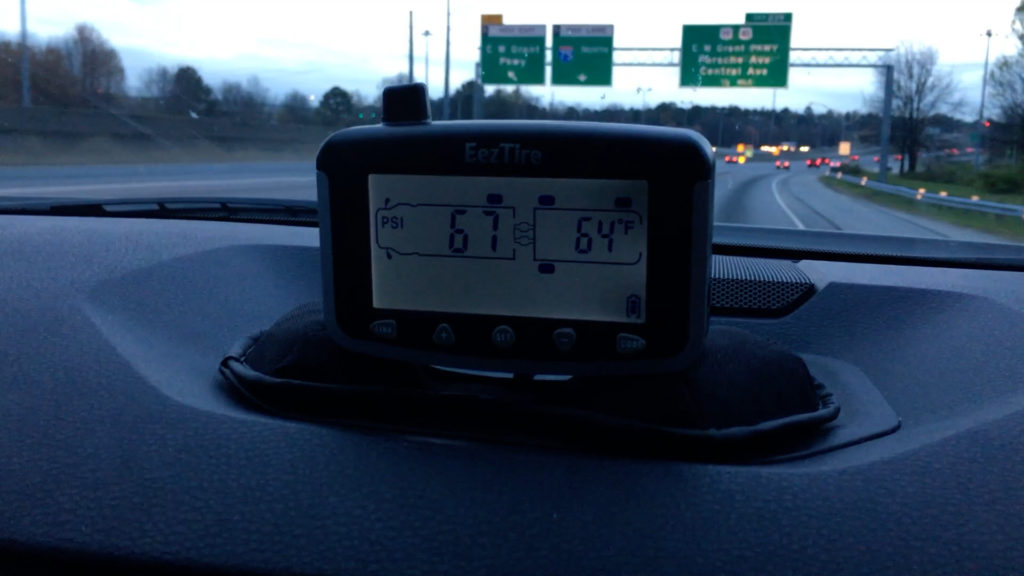
Good communications can solve some of this by using phones or walkie-talkies when backing in, but generally, to be safe, go way slower than you think. A good set of Bluetooth phone headsets for the spotter and running the phone through the tow vehicle’s speakers for the driver will work wonders in this regard.
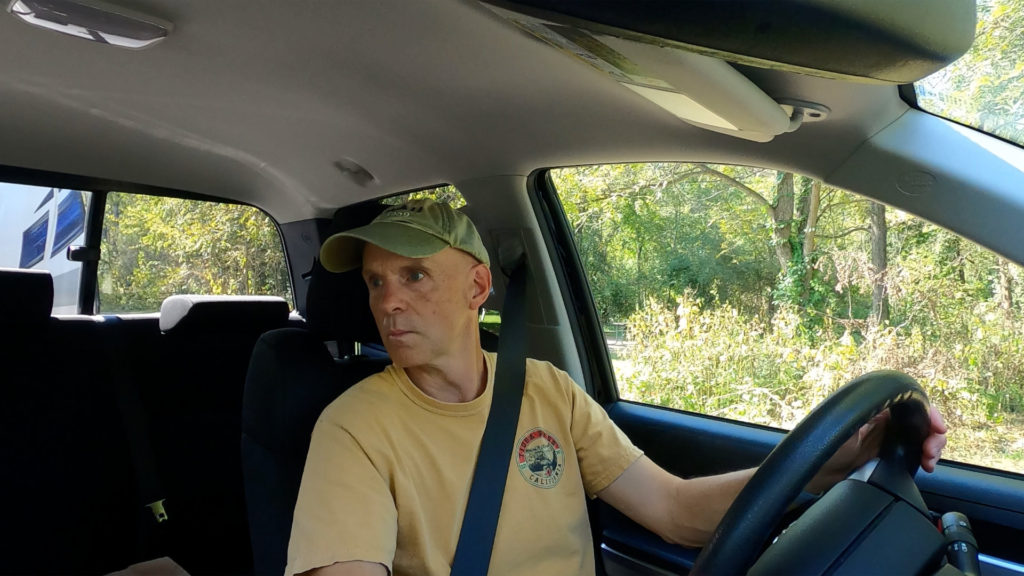
Finally, slow it down on campground roads. Usually, some kids are riding around and playing freely, which is a great part of camping. If you think about it, a campground is one of the few places where kids can just play with other kids, make friendships quickly and have fun. You likely also know that if you own a truck, you probably have a vehicle with the worst possible visibility. My truck has huge blind spots, and I am always concerned about it in tight spots. So, if you are driving around a campground, remember to slow it down.
Number 2 in our Countdown – Improper Towing Setup
It is very easy to have an improper towing setup and not know it, especially when getting started. The very first RV I owned, my 2016 R-Pod 171, I towed with a 2014 Honda Pilot 4WD. The dealer did a horrible job of setting the hitch for towing, and I had no idea about it at the time. The trailer leaned back, which is about the worst possible way to tow a trailer. It wasn’t until a week or two into owning the trailer that I started questioning what they did. Essentially, they didn’t want to order a longer shank for the hitch and so sent me out with a short hitch shank which raised the ball too high for the small trailer, leaning the trailer back.
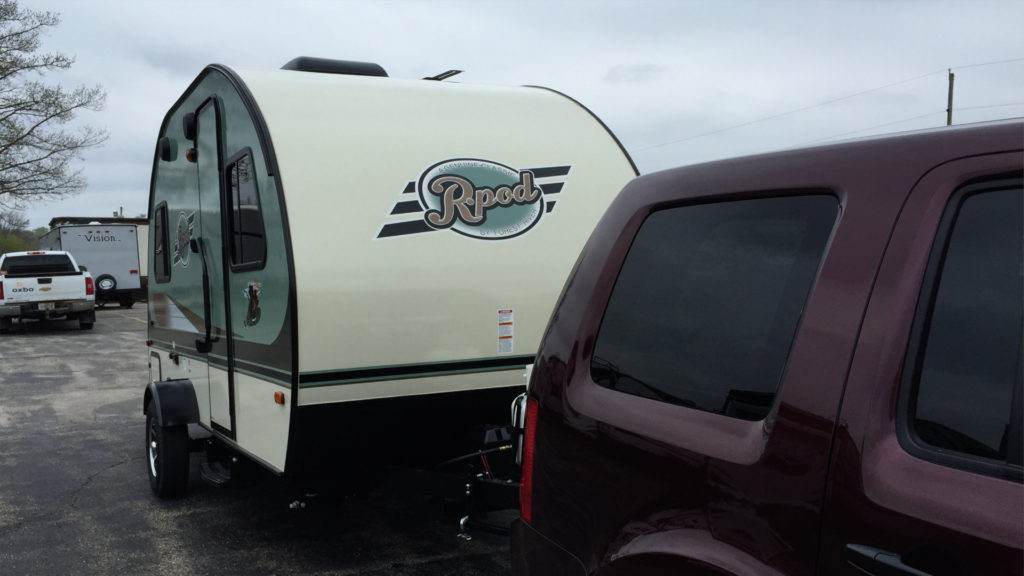
I was fairly ignorant at the time, but it started to dawn on me quickly that the trailer should be somewhat level when towing, shouldn’t it? The dealer did replace the shank with the properly sized one, and amazingly the Honda Pilot and R-Pod 171 started working together much better. This is all to say that you should get some understanding about towing the trailer you own or are planning to buy before you buy it.
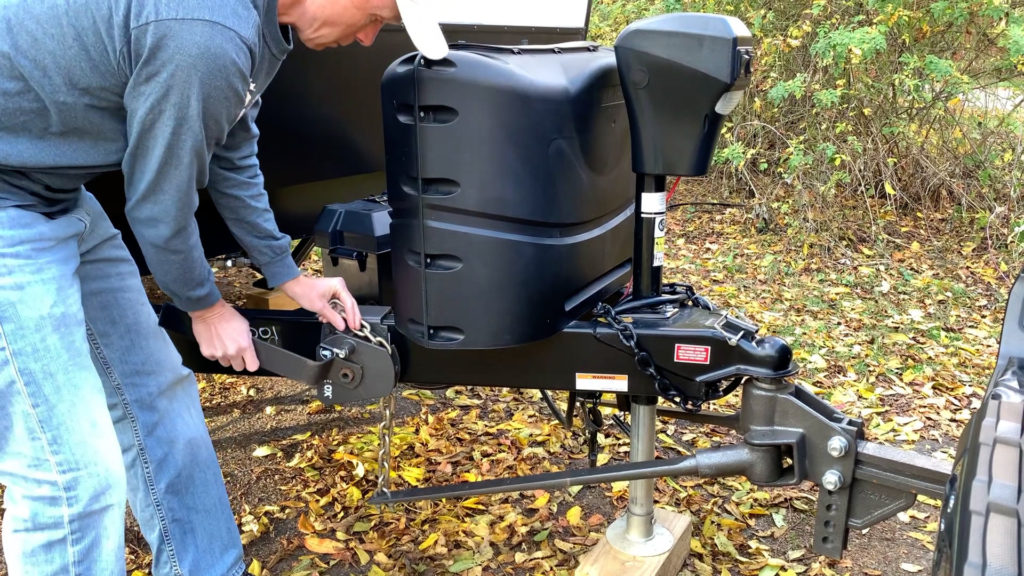
Every RV I’ve owned, I’ve used a weight-distribution hitch and think, in general, they are an essential piece of safety equipment. A weight distribution hitch or WDH helps distribute the tongue weight of the trailer fore and aft so that too much weight isn’t sitting on the back axle of the tow vehicle, making the front steering axle sloppy and braking dangerous. If you ever feel like your tow vehicle has a sloppy steering feel, you likely need to redistribute weight forward to the steering axle. I won’t go into more detail here because we have an outstanding video called RV Towing – Weight Distribution Hitch Basics, a must-watch for anyone who tows a travel trailer. The video link is in the description below.
Number 1 in our Countdown – Buying the Wrong RV
To buy the right RV, you have to ask several questions. By the way, if you are just getting started with your first RV, some of these things you may not know before you get out and see what you like. I owned my first RV for eleven months and quickly realized it wouldn’t suit what I wanted to do. So, mistakes are common in this regard.
Here are some questions to consider:
- How often do you plan to camp?
- Would you rather camp at organized campgrounds or off-grid?
- Do you plan to be in the RV a lot or live outside most of the time?
- Do you plan on cooking primarily inside the RV or outside at the campsite?
- Do you plan to use the campground bathhouse?
There are other questions about your current tow vehicle’s capability, financial ability, etc., that play into the picture, but for now, let’s run through a quick scenario given the above questions.
Scenario – Bob and Stacy are close to retirement age and want an RV to escape the harsh winters in the north.
- How often do they plan to camp? Bob and Stacy would like to use their new RV occasionally in the summer but would like to live in it most of the winter months down south.
- Would they rather camp at organized campgrounds or off-grid? They plan to camp only at organized public and private campgrounds.
- Do they plan to be in the RV a lot or live outside most of the time? They both have some online work commitments and will be inside most of the day.
- Do they plan on cooking primarily inside the RV or outside at the campsite? Stacy likes to cook and likely will be cooking most of the meals inside.
- Do they plan to use the campground bathhouse? Neither Bob nor Stacy is keen on using public restrooms or showers.
When I look at this scenario, the couple needs a large premium travel trailer, fifth wheel, or Class A motorhome with plenty of space and a quality kitchen. Off-grid and off-road options are unnecessary, but a full bathroom is essential. The rig they should buy must also have a comfortable seating area for work.
Since there is no way to fit all the requirements into a small travel trailer, Bob and Stacy will either need a heavy-duty truck for towing or go with a Class A motorhome if they have the resources to do so. To me, Bob and Stacy are prime candidates for a premium fifth wheel with a ¾-ton or full-ton truck to pull it.
So, there is a lot that goes into the decision of what RV to buy, and you need to carefully work through the various options based on your travel preferences and budget.
Okay, that’ll do it for this blog.
All the best in your camping endeavors!
As always, thanks to our fans who support our efforts by starting their shopping from our Amazon Storefront and by their generous financial support by using the THANKS feature located under each YouTube video ($ within the Heart icon). Your support is greatly appreciated!
